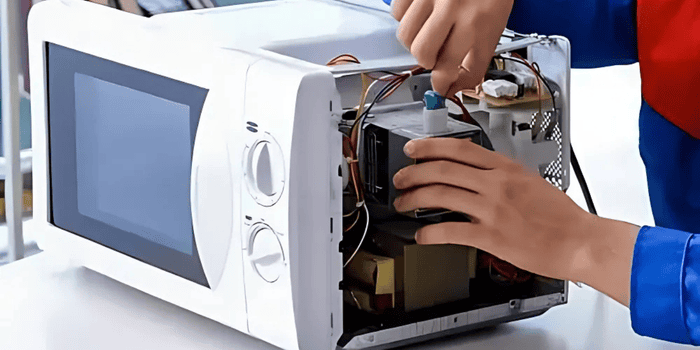Toronto Refrigeration When It Comes To Microwave Repairs

The microwave is just one of the common marvels of our age. Convenient, time-saving, and relatively safe, it’s revolutionized private and business approaches to food (for better or worse …) and become a fixture in just about every household and corporate setting. But when you start experiencing problems with your own unit, it can be difficult to know whether you’ve got a basic malfunction or a disaster that either needs a complete overhaul or a new unit entirely. Luckily, when you’ve got our expert team on speed dial, you know that you’ve got access to professional advice for whatever the situation. Get in touch whenever your microwave is giving you grief, and we’ll solve the problem — quickly and confidently.
There are a few things you can do to assess the situation before giving us a call, though. If the microwave isn’t cooking food properly, it may be as simple and fixable as returning it to a higher-power setting (microwaves are re-set for lower temperatures by accident all the time). Crank up the power to the highest levels, and test your appliance’s strength by heating up a cup of water. If the water doesn’t get hot after a minute or two, you’ve definitely got a problem that needs some more sophisticated repairs.
Condensation (or steam) caused by excited molecules in your food is harmless; the interior of your microwave is an impenetrable steel box. But a steam-filled kitchen can damage the inner workings of the microwave from the outside-in. Try keeping your unit as far away from your conventional oven as possible; this will limit the amount of boiling or cooking smoke and steam that can reach it. If you suspect steam to be a possible cause for a malfunction, air your unit out—leave the door open, don’t create any steamy meals, and then give it a whirl. Alternatively, you might have a problem simply from rough handling. Be gentle on your appliance; don’t slam the door, don’t yank it open while it’s cooking, and remember that safety switches and other components in the frame and door can be damaged by impatience and poor handling!
Rattling, humming, buzzing, or whining sounds mean trouble. The same goes for burning or smoky or acrid smells. Diodes and capacitors can often need replacements. If you ever spot a spark or any smoke around your microwave, you’ve got a significant problem (aside from momentary flames and smoke from accidentally placing foil or metal into the unit). Be sure to get on the line and let us know what you’re experiencing so that we can rescue your machine before anything worse develops.
Our licensed and trained technicians know how to navigate the sometimes-dangerous components of all modern microwaves. Don’t risk harming yourself or damaging your investment any more by trying to perform complicated tasks best left to those with proper training. We’ve serviced microwaves from 2015 all the way back to the 80s, so we’ve seen it all when it comes to these radioactive marvels. Call us today and we can be in and out of your home or office in no time!